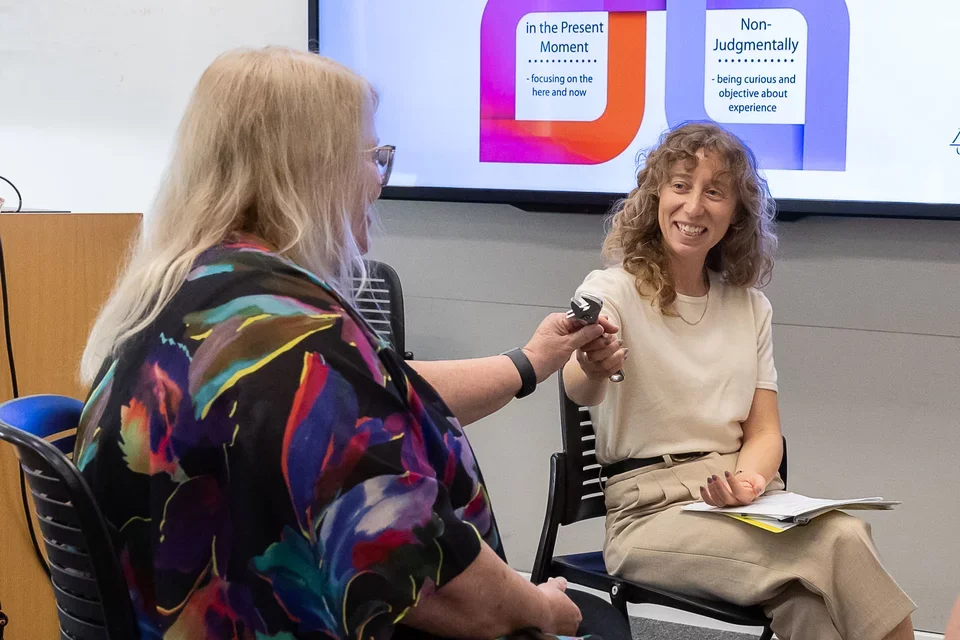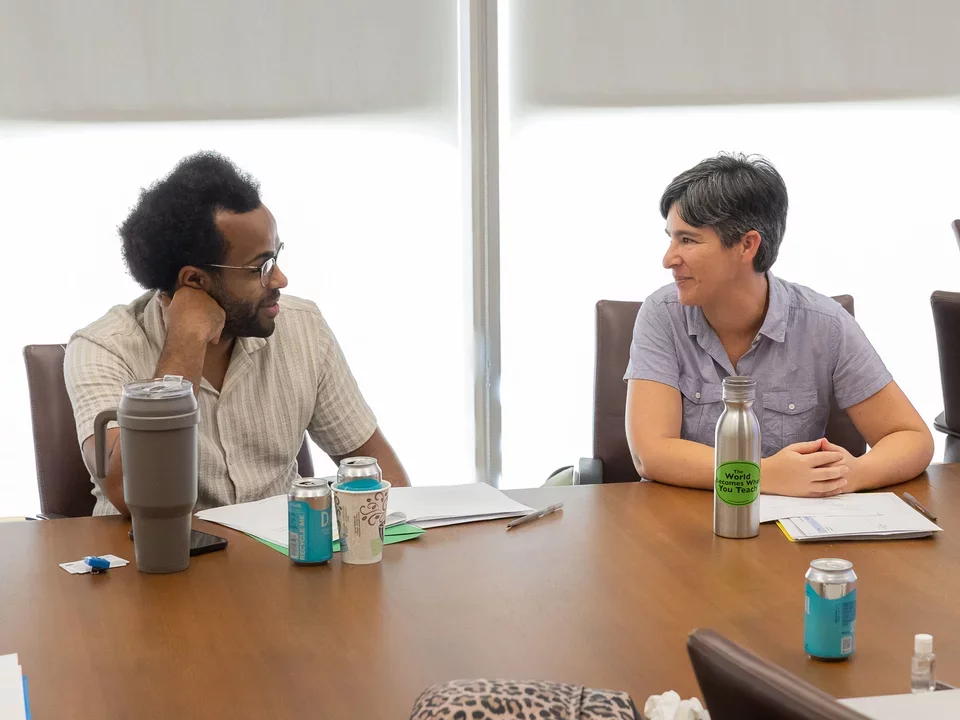Education & Training
Get Involved.

Learn more about RPAM.
RPAM 101 Training
This workshop gives leadership, faculty, staff, and trainees an overview of restorative practices and dives deeper into the three RPAM Circle tiers, focusing on community building and acknowledgement of accountability.
“The Restorative [Practices] training at UCLA was beyond transformative, and I am so grateful for the experience that I am certain has changed me on so many levels. It was a very powerful and unforgettable experience to be part of a training that created a community… and allowed us the opportunity to experience how Restorative [Practices] can help us find peace and make changes that honor humanity.” Luana Turner, PsyD | Semel Institute for Neuroscience and Human Behavior
In this training, you will learn:
- When to consider restorative practices to promote healing when harm has occurred.
- How to incorporate community building circles into everyday work.
- How leading with a restorative mindset can help navigate conflict.
Commitment:
- One 3-hour session available both virtually and in-person
Upcoming Trainings:
- There are no public RPAM 101 Trainings scheduled at this time.
- However, if you are interested in hosting one for your team, please contact us DGSOMRPAM@mednet.ucla.edu

Become a RPAM facilitator.
RPAM Ambassador Program
This program welcomes faculty, staff and trainees who would like to learn a relational framework that can help the UCLA community navigate difficult issues (e.g., academic integrity, campus climate, Title IX, misconduct), by learning how to respond to instances of individual, communal, or historical harm in ways that support active accountability, deeper understanding, shared decision-making, and prevention of future harms.
RPAM Ambassadors develop the necessary skills to create more supportive, inclusive, and resilient learning communities while fostering a sense of belonging for all community stakeholders. The ideal candidate aspires to serve as a university change agent committed to engaging in communal healing through restorative practices.
In this program, you will:
- Build and sustain relationships and a strong sense of community
- Design and facilitate Tier 1 Community Building Circles
- Create the conditions for authentic and restorative dialogue
- Proactively reduce risk of harm and acknowledge it when it is done
- Engage in difficult conversations across different perspectives
- Prepare participants to engage authentically in restorative processes
- Enhance skills om advocacy and activism that fosters meaningful collaboration
- Live restoratively
Commitment:
- Two sets of back-to-back full day, in-person trainings (Four Days in Total)
- Subsequent recurring community of practice meetings throughout the year.
- Serve as a RPAM Ambassador for two years, which can be renewed.
- Facilitate one Tier 1 Community Building Circle per month or 12 Circles per calendar year.
Eligibility:
- Completion of DGSOM RPAM 101 Training or equivalent.
- Faculty, Staff, or Trainee with DGSOM affiliation.
Application Materials:
- CV or Professional Resume.
- Personal statement that specifically addresses interest in the program, a working understanding of restorative practices, and an articulated commitment to help foster a more responsive University community for all (~250 words).
- Recommendation letter from direct supervisor affirming support for the applicant (e.g., release time for participation in both the training and subsequent ambassador role).
Program Application Cycle:
We are formulating a timeline for our second cohort of RPAM Ambassadors.
Stay informed on the application cycle.